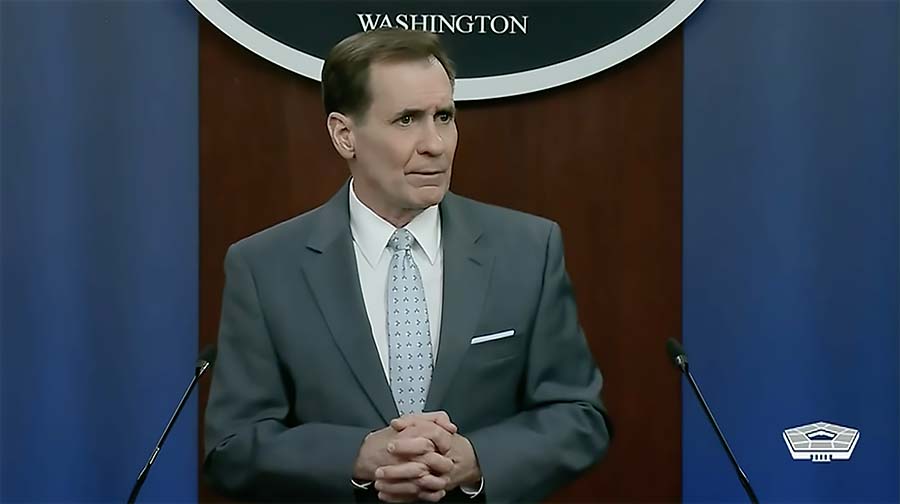The Defense Department is learning from the experiences of the past six months as Russia built up troops around Ukraine and then invaded the country, Press Secretary John F. Kirby said at a Pentagon press conference today.
By Jim Garamone, US Department of Defense – News Stories | Republished by NewsVoice
Those observations are being incorporated into the National Defense Strategy, he said.
The National Defense Strategy is still being crafted, along with the National Security Strategy. Both documents are based on President Joe Biden’s interim national security guidance.
Secretary of Defense Lloyd J. Austin III said in Poland on Feb. 18, that many aspects of the strategy are already in play in regards to efforts with Russia. ”The secretary was clear that it will reinforce his notion of an integrated deterrence and it will certainly recognize that China remains the pacing challenge for the department,” Kirby said.
But the document also recognizes that other nation-state threats are out there: And that includes Russia, he said.
”As we’ve been writing it, … we’ve watched Russia over the last couple of months build up this massive military force around Ukraine’s borders,” Kirby said. ”So, it would be foolish for us to think the crafting of it wasn’t also informed by what we’ve been seeing Russia do.”
Kirby also discussed the deconfliction line that has been set up between U.S. European Command and Russia’s Ministry of Defense. ”It is basically … a phone connection to the Russian Ministry of Defense,” Kirby said. ”As I understand it’s basically staffed by staff level officers at European Command … and it’s being administered as a bilateral U.S. to Russia deconfliction channel.”
Kirby said they have tested the line. ”When we tested it, they did pick up the other end and acknowledge that they got the call,” he said.
Kirby said U.S. officials believe it is valuable to have such a direct line at the operational level to ”reduce the risks of miscalculation and to be able to communicate in real time if need be.”
This is particularly important because the airspace over Ukraine is contested by both Russia and Ukraine. The contested airspace abuts NATO countries.
By Jim Garamone, US Department of Defense – News Stories | Republished by NewsVoice



